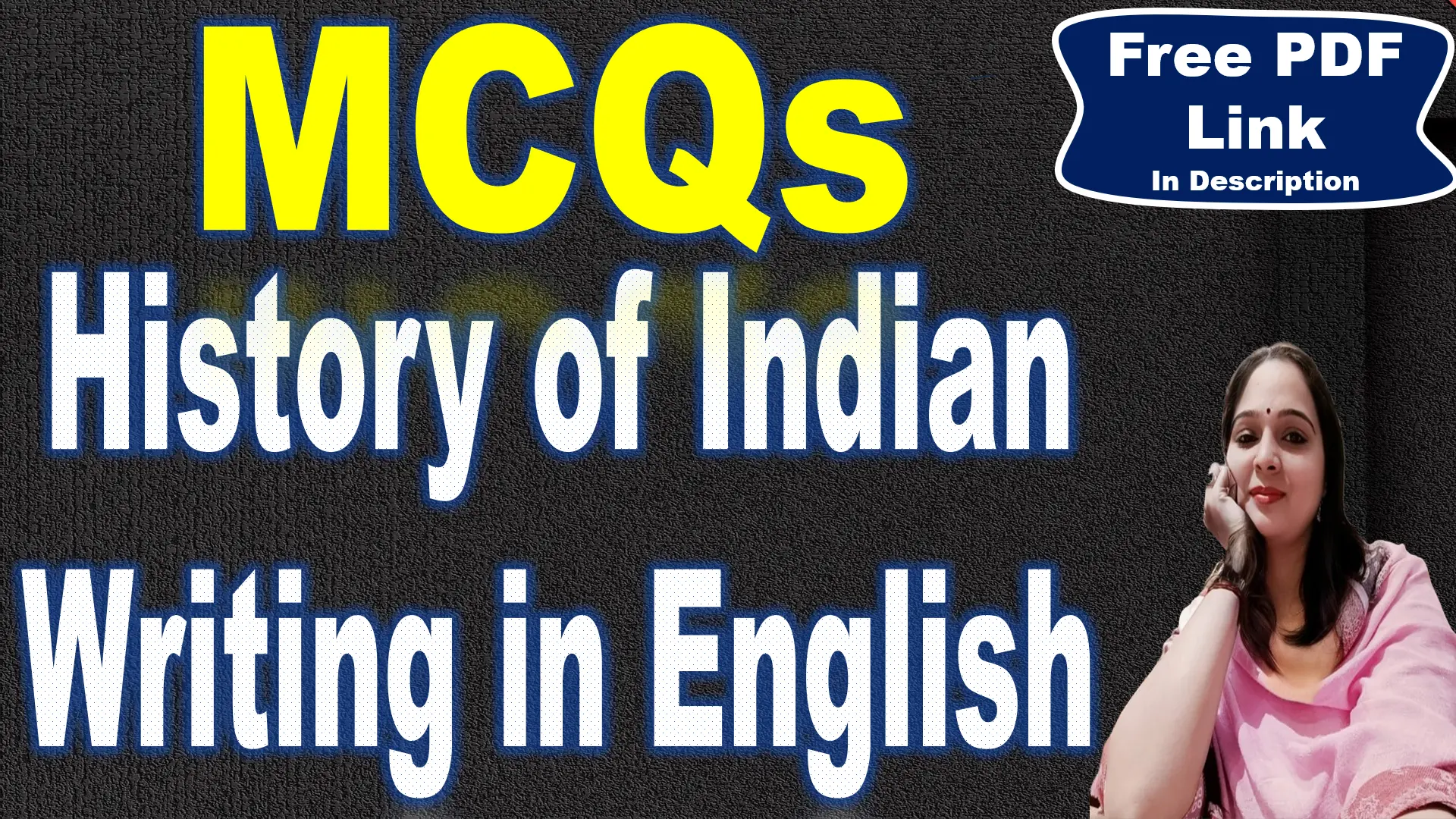
41. What literary device is used in “the Horn of Plenty is undone”?
a) Personification
b) Hyperbole
c) Allusion
d) Irony
Answer: c) Allusion
Explanation: The phrase “the Horn of Plenty is undone” is an allusion to the Greek mythological symbol of abundance, known as the “cornucopia” or “Horn of Plenty.” This horn is often depicted as a symbol of abundance and wealth. In Yeats’ context, he uses the phrase to suggest the depletion or loss of material wealth, as the horn, which traditionally symbolizes prosperity, is now “undone.” This allusion ties to the broader theme of the emptiness and potential dangers of focusing on superficial beauty or wealth, which Yeats critiques throughout the poem.
42. What does the “spreading laurel tree” symbolize at the poem’s end?
a) Tradition and stability
b) Victory and fame
c) Intellectual pursuit
d) A life of adventure
Answer: a) Tradition and stability
Explanation: The “spreading laurel tree” at the end of the poem represents stability, tradition, and rootedness. Laurel trees, often associated with honor and accomplishment in classical antiquity, symbolize an enduring legacy. Yeats contrasts the laurel’s rooted nature with the fleeting, unstable nature of beauty and superficial fame. The tree’s spreading nature suggests that tradition, ceremony, and grounded values can provide a lasting foundation for a peaceful and meaningful life, which Yeats desires for his daughter.
43. What historical context might the “storm” in the poem reflect?
a) The Industrial Revolution
b) The Irish War of Independence
c) The French Revolution
d) The Victorian Era
Answer: b) The Irish War of Independence
Explanation: The “storm” in Yeats’ poem likely reflects the tumultuous political climate of Ireland during the period, specifically the Irish War of Independence (1919-1921). Yeats wrote the poem in the aftermath of World War I and the Irish War of Independence, which had brought great instability and upheaval to the country. The storm represents the chaotic, uncertain world into which Yeats feared his daughter would grow, filled with violence, political unrest, and emotional turmoil. It symbolizes the external forces threatening peace and stability.
44. What is the poet’s ultimate wish for his daughter’s life?
a) To be powerful and influential
b) To be happy and rooted in innocence
c) To be beautiful and admired
d) To be free of all tradition
Answer: b) To be happy and rooted in innocence
Explanation: Yeats’ ultimate wish for his daughter is that she will live a life of happiness and innocence, untouched by the external chaos and superficial concerns that surround her. He hopes for her to be grounded, virtuous, and free from the destructive forces of excessive beauty, vanity, and materialism. By desiring her to be rooted in innocence, Yeats emphasizes that true happiness comes from inner peace, stability, and the cultivation of virtues like kindness, rather than the pursuit of fame, power, or external beauty.
45. What does the “great gloom” in the poet’s mind likely stem from?
a) Personal loss
b) Fear for his daughter’s future
c) A lack of inspiration
d) Disdain for beauty
Answer: b) Fear for his daughter’s future
Explanation: The “great gloom” Yeats experiences reflects his deep fears and anxieties about the future of his daughter. In a world filled with war, political unrest, and societal change, Yeats is concerned that his daughter will face a future fraught with challenges and dangers. The gloom symbolizes his emotional turmoil and the uncertainty that comes with raising a child in such an unstable time. Yeats’ fears for her safety and well-being are central to the poem, as he hopes for her to avoid the perils of beauty, vanity, and a chaotic world.
46. What does the “flooded stream” in the second stanza symbolize?
a) Emotional turmoil
b) A peaceful landscape
c) The passage of time
d) A barrier to safety
Answer: a) Emotional turmoil
Explanation: The “flooded stream” in the poem serves as a metaphor for emotional turmoil and conflict. Just as a flood can overwhelm its surroundings, emotional distress can overwhelm a person’s thoughts and life. The flooded stream suggests a sense of chaos and instability, evoking the turbulent emotional state Yeats is experiencing as he walks and prays. This emotional turmoil mirrors the chaotic world he fears his daughter will have to navigate. It reinforces the poem’s themes of instability and the vulnerability of youth in a turbulent world.
47. What is the “murderous innocence of the sea” an example of?
a) A natural disaster
b) A paradox of nature’s dual nature
c) A reference to mythology
d) A symbol of purity
Answer: b) A paradox of nature’s dual nature
Explanation: The “murderous innocence of the sea” is a paradox that highlights the dual nature of the sea. While the sea is often seen as a symbol of purity and natural beauty (innocence), it also has the potential to be destructive and dangerous (murderous). This paradox reflects Yeats’ complex view of nature and beauty. In the poem, the sea represents the unpredictable and uncontrollable forces of the world—forces that are both innocent and capable of harm. Yeats uses this paradox to suggest that beauty, too, can be both a gift and a threat.
48. What does Yeats suggest about beauty in the third stanza?
a) It is always a virtue
b) It is unimportant
c) It guarantees happiness
d) It can lead to vanity and isolation
Answer: d) It can lead to vanity and isolation
Explanation: In the third stanza, Yeats expresses the fear that excessive beauty can lead to vanity, selfishness, and isolation. He cautions that a person who is overly concerned with their appearance may become disconnected from others, losing their natural kindness and the ability to form genuine, meaningful relationships. Beauty, while often admired, can be a double-edged sword, leading to superficiality and loneliness if it becomes the primary focus of one’s identity. Yeats warns that beauty should be accompanied by other virtues to maintain balance in life.
49. What does the phrase “heart-revealing intimacy” refer to?
a) Romantic love
b) Genuine human connection
c) Intellectual debate
d) Family loyalty
Answer: b) Genuine human connection
Explanation: The phrase “heart-revealing intimacy” refers to the deep, genuine emotional connections that form between people who are open, honest, and vulnerable. Yeats emphasizes that true intimacy is not just physical attraction but an emotional bond where people share their innermost selves. He suggests that this type of intimacy, built on mutual respect and kindness, is more important than external beauty or superficial relationships. It is a connection that reveals the true essence of a person, fostering closeness and understanding.
50. Why does Yeats reference Helen of Troy in the fourth stanza?
a) To praise her beauty
b) To warn of beauty’s consequences
c) To celebrate her wisdom
d) To criticize her choices
Answer: b) To warn of beauty’s consequences
Explanation: Yeats references Helen of Troy to warn about the potential consequences of beauty. In Greek mythology, Helen’s extraordinary beauty led to the Trojan War, bringing about great suffering and destruction. By invoking Helen, Yeats highlights the dangers of excessive beauty, which can attract unwanted attention, jealousy, and conflict. He cautions that beauty, while alluring, can lead to chaos and tragedy if it becomes the central focus of a person’s life, overshadowing more important virtues like kindness and wisdom.
51. What does the “crazy salad” metaphor imply about women’s choices?
a) They are unpredictable and flawed
b) They are nourishing and wise
c) They are simple and pure
d) They are forced by society
Answer: a) They are unpredictable and flawed
Explanation: The “crazy salad” metaphor suggests that the choices made by “fine women,” particularly regarding love and relationships, are often unpredictable and flawed. Just as a salad with strange or mismatched ingredients could lead to an unusual and disordered result, Yeats implies that beauty and superficiality can lead women to make irrational or misguided decisions. The metaphor highlights the disordered nature of decisions based too heavily on external factors like beauty, rather than on deeper, more grounded values.
52. What quality does Yeats value over physical beauty in the fifth stanza?
a) Wealth
b) Charm and kindness
c) Intelligence
d) Ambition
Answer: b) Charm and kindness
Explanation: In the fifth stanza, Yeats expresses that charm and kindness are far more valuable than physical beauty. He implies that a person’s true worth comes from their ability to connect with others through kindness, sincerity, and warmth, rather than being defined by outward beauty. For Yeats, these qualities foster genuine relationships and are what lead to a fulfilled, meaningful life. While beauty may initially attract attention, it is charm and kindness that sustain long-lasting bonds and true happiness.
53. What does the “linnet” represent in the sixth stanza?
a) Freedom and flight
b) Joyful simplicity and song
c) Sorrow and loss
d) Strength and endurance
Answer: b) Joyful simplicity and song
Explanation: The linnet, a small, cheerful bird known for its melodious song, symbolizes joyful simplicity and the natural flow of thoughts. Yeats uses the linnet to represent the type of mindset he hopes for his daughter—a mind that is pure, unburdened, and full of joyful expression. The linnet’s song reflects the freedom of thought, the capacity for joy, and the lightness of spirit that Yeats wishes for his daughter, contrasting with the heavy burdens of intellectual conflict and societal expectations.
54. What does Yeats mean by “merriment” in the context of his daughter’s life?
a) A carefree, lighthearted spirit
b) A superficial existence
c) A life of constant celebration
d) A rejection of responsibility
Answer: a) A carefree, lighthearted spirit
Explanation: In the context of his daughter’s life, Yeats refers to “merriment” as a carefree and lighthearted spirit, not weighed down by the serious, often overwhelming complexities of adult life. He wishes for her to approach life with joy, spontaneity, and freedom, without being bogged down by the burdens of intellectual conflict or excessive seriousness. Merriment here is about maintaining a joyful outlook, keeping a sense of wonder and positivity, even as she matures.
55. What does the “green laurel” symbolize in the poem?
a) Eternal youth and peace
b) Victory in competition
c) A connection to nature
d) A life of solitude
Answer: a) Eternal youth and peace
Explanation: The “green laurel” symbolizes eternal youth, peace, and the stability that comes from tradition. In classical mythology, the laurel tree is associated with Apollo and victory, but in this context, Yeats uses it to evoke a sense of lasting calm and rootedness. It represents the kind of life Yeats hopes his daughter will lead—one that is not driven by fleeting fame or beauty, but by a deeper, peaceful connection to tradition and virtuous living that endures through time.
56. What does Yeats lament about the “minds that I have loved” in the seventh stanza?
a) They have betrayed him
b) They prosper little lately
c) They lack beauty
d) They are full of hatred
Answer: b) They prosper little lately
Explanation: He says, “The minds that I have loved… prosper but little, has dried up of late.” Yeats laments that the “minds that I have loved”—the people he respects for their intellectual and emotional depth—have not prospered in recent times. This reflects his disillusionment with the political and social turmoil of the post-war era. He feels that those who value wisdom, creativity, and thoughtful engagement with the world are struggling to thrive, possibly overshadowed by more superficial or destructive forces in society. Yeats seems to mourn the decline of these noble ideals in the face of chaos and conflict.
57. What does the poet suggest about hatred’s effect on the mind?
a) It sharpens focus
b) It chokes and destroys
c) It inspires creativity
d) It brings clarity
Answer: b) It chokes and destroys
Explanation: Yeats suggests that hatred is a destructive force that chokes and destroys the mind. Hatred clouds judgment, poisons relationships, and prevents personal growth. Rather than leading to clarity or strength, hatred erodes the soul, leaving bitterness and negativity. Yeats is warning against the corrosive effects of holding onto anger and resentment, emphasizing that these emotions can suffocate a person’s capacity for joy, creativity, and peace. The mind, when consumed by hatred, loses its freedom and becomes imprisoned by its own negative energy.
58. What does the “loveliest woman born” likely represent?
a) Yeats’s wife
b) A figure like Maud Gonne
c) His daughter
d) A fictional ideal
Answer: b) A figure like Maud Gonne
Explanation: The “loveliest woman born” is often interpreted as a reference to Maud Gonne, Yeats’ muse and unrequited love. Gonne was a prominent figure in Yeats’ life, and her beauty, both physical and intellectual, was central to his poetic imagination. Yeats admired her deeply, but their relationship was fraught with emotional complexity. By referring to her as the “loveliest woman born,” Yeats both idealizes and critiques her, suggesting that her beauty and the idealization of her led to personal and political struggles, reflecting the dangers of focusing solely on outward beauty.
59. What does Yeats criticize about an “opinionated mind”?
a) It lacks originality
b) It trades goodness for conflict
c) It is too intellectual
d) It seeks approval
Answer: b) It trades goodness for conflict
Explanation: Yeats criticizes the “opinionated mind” because it often sacrifices goodness and virtue in favor of intellectual conflict. He believes that rigid opinions, when held dogmatically, lead to division and strife. An opinionated person is often more interested in winning arguments or asserting their viewpoint than in fostering understanding or kindness. Yeats suggests that the pursuit of intellectual certainty, when it becomes a source of pride, can undermine the deeper, more meaningful connections that are essential for a harmonious life.
60. What does the phrase “radical innocence” imply?
a) A return to a pure, untainted state
b) A rebellious spirit
c) A rejection of tradition
d) A naive outlook
Answer: a) A return to a pure, untainted state
Explanation: “Radical innocence” refers to a return to a pure, untainted state, free from the corruption of hatred, bitterness, or intellectual pride. Yeats uses this phrase to suggest that a person, especially his daughter, should strive for a kind of innocence that is not naive, but rather an unblemished purity that comes from wisdom, empathy, and emotional honesty. This innocence is “radical” in that it is deeply transformative, allowing a person to reclaim their authentic self, unburdened by the negative influences of the world.





